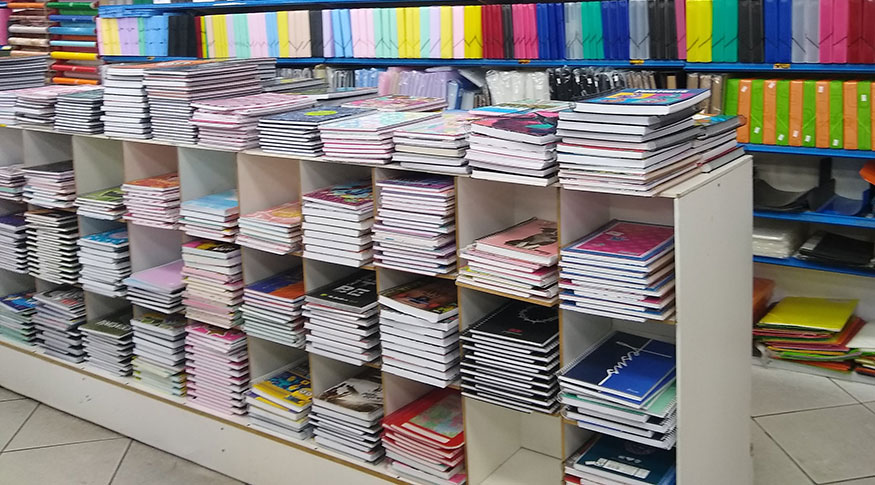Monthly Survey of Trade
Retail sales grow 0.6% in February, after two months of negative change
April 13, 2021 09h00 AM | Last Updated: April 14, 2021 11h16 AM

After two consecutive months with negative changes adding up to a fall of 6.3%, the volume of sales of the national retail trade rose again, in February compared to January, registering an increase of 0.6%. Retail is now at the same level as in September 2020 and 0.4% above the pre-pandemic level (February 2020). The information is from the Monthly Survey of Trade (PMC), released today (13), by the IBGE.
Between May and October 2020, trade had shown strong growth, however, the scenario changed in December.
“The average earnings of low-income families increased by 130% with the emergency assistance and, therefore, the period of May and October was very good for the retail trade, which reached a level of 6.5% above the pre-pandemic period. In December, however, the value of the aid decreased and, in January, it was interrupted, and this reduced consumption. The other negative impacts on retail come from inflation and factors related to the pandemic, such as local restrictions to some activities”, says PMC manager, Mr. Cristiano Santos.
On the other hand, he points out that the beginning of the school year generated an increase in sales. “January is a month of extraordinary bills, such as IPTU and IPVA taxes, so lower consumption is common. In February, the monthly budget of families goes back to normal levels and the return of students to schools heat up purchases of school supplies. So, even with Carnival cancellation, which results, for example, in lower sales of alcoholic beverages in supermarkets, we had a positive change this month”, evaluates Mr. Santos.
Four of the eight activities surveyed were up, with books, newspapers, magazines and stationery (15.4%) registering the greatest growth compared to January. However, this activity fell by 41% compared to February 2020 sales volume.
“It has been a while since this activity last had growth, as the world has become more and more digital, and paper is replaced by digital means, but in Febraury 2021, the sales reduction was much stronger than in the previous years. That is due to the fact that many public schools have not yet started the school year, for instance, and also to the fact that many of them have not resumed face-to-face classes. Moreover, as a whole, the pandemic has been making it necessary to change the didactic materials for a better adaption to the distance mode. This reduces the need for physical books and stationary", says Mr. Santos.
The other increases from January to February 2021 were in the activities of furniture and household appliances (9.3%), fabric, apparel and footwear (7.8%) and hypermarkets, supermarkets, food products, beverages and tobacco (0.8%), with the last two ones also falling sharply compared to February of the previous year (-18.6 and -4.6%, respectively). Furniture and household appliances increased 0.7% in this comparison.
Nineteen of the 27 Federation Units had positive rates in February compared to January. Amazonas (14.2%), Rondônia (11.5%) and Piauí (8.3%) stood out positively. On the other hand, Acre (-12.9%), Tocantins (-4.4%) and Federal District (-2.1%) had the biggest falls.
In the comparison of February 2021 against February 2020, retailers registered a drop of 3.8% in the general index. Thus, in the first two months of 2021, compared to the same period of the previous year, retail sales decreased by 2.1%.
Extended retail increased 4,1%
In the extended retail trade, which includes the activities of motor vehicles, motorcycles, parts and pieces (8.8%) and of construction materials (2.0%), the volume of sales grew by 4.1% from January to February, after having recorded two months of decline.
“Construction materials is an activity that has grown a lot, both because people, spending more time indoors, end up seeing the need to make improvements in their homes, and because major works are also being resumed by construction companies”, he points out.
Amazonas (20.2%), Rondônia (9.9%) and Piauí (9.5%) were the states that registered the highest increases from January to February in expanded retail. On the other hand, Acre (-5.3%), Tocantins (-2.1%) and Amapá (-1.6%) were the negative highlights in this comparison.
Compared to February 2020, however, the extended retail trade decreased by 1.9%, the second negative rate in a row (-3.1% in January), after six months of consecutive increases, and closed the first two months of 2021 with a fall 2.5%. In February, the segment of motor vehicles, motorcycles, parts and pieces (-3.8%) decreased compared to the same month of 2020, while the segment of construction materials grew 17.9%, in this comparison.
About the survey
The Monthly Survey of Trade produces indicators that allow to monitor the short-term behavior of retail trade in the country and brings monthly results of the change in volume and nominal sales revenue for retail trade and extended retail trade (motor vehicles and construction materials) for Brazil and Federation Units. The collection technique is the - Self-administered electronic questionnaire (CASI) and Personal interview with paper questionnaire (PAPI). The complete survey can be accessed here and the results can be found on the Sidra database.




















